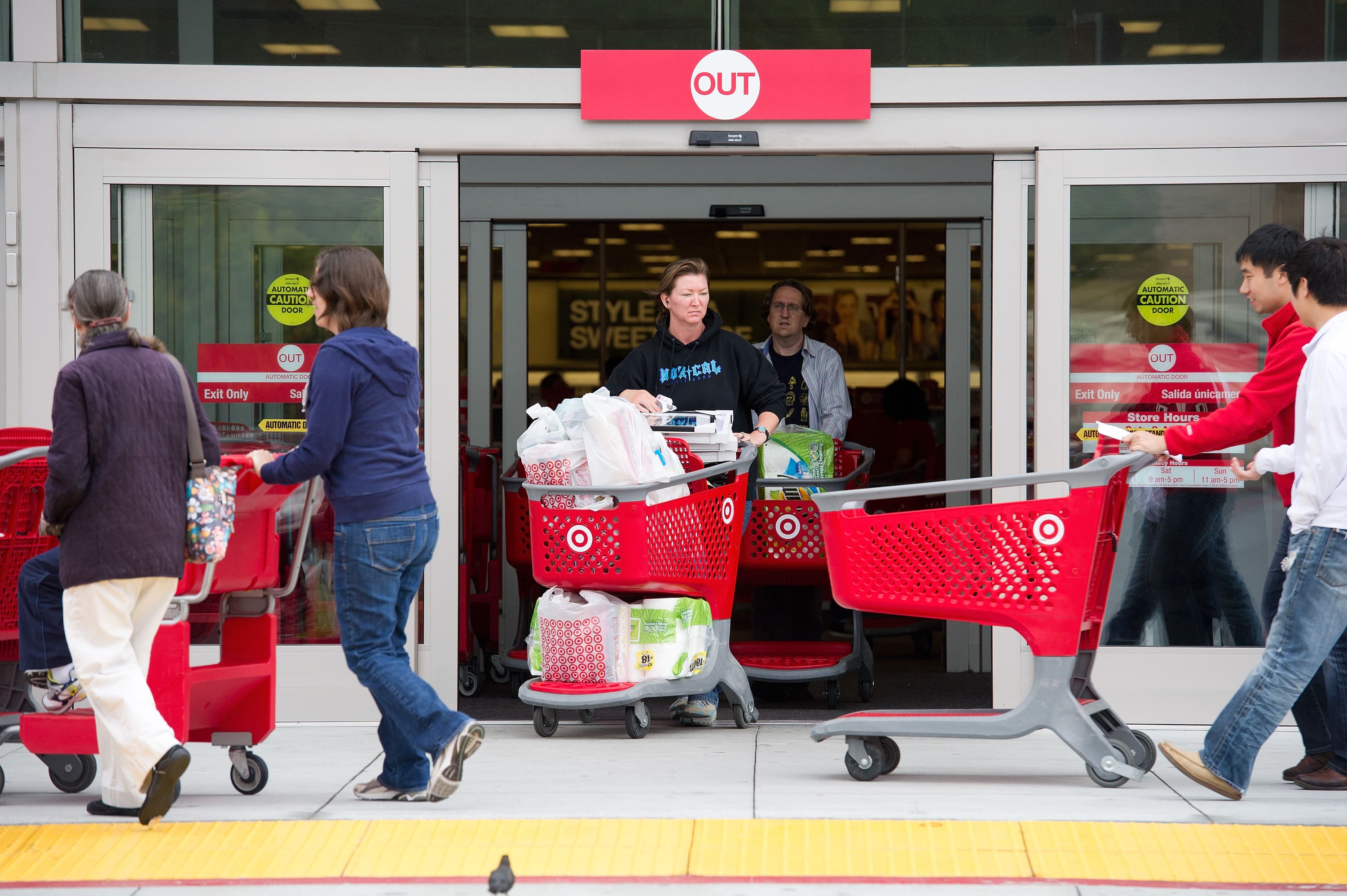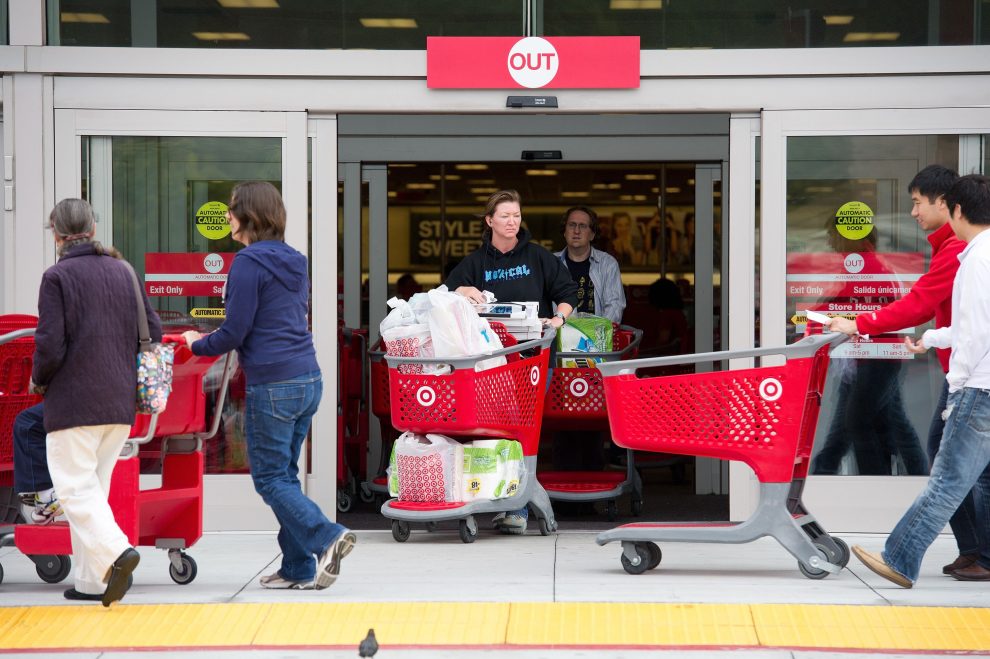
Target shares soared Wednesday after the discount retailer reported fiscal first-quarter earnings and sales that topped analysts’ expectations, as it brought more people to its stores and convinced them to spend more money there.
Target’s e-commerce sales also surged 42%, as shoppers increasingly turned to its curbside pickup service for online orders, something Amazon can’t offer.
Even with the looming threat of 25% tariffs on apparel and footwear imported from China going into effect, Target maintained its outlook for the full year. The upbeat report contrasts those of department store chains earlier in the week, which largely disappointed investors.
Target shares jumped nearly 10% on the news.
Here’s what the big-box retailer reported compared with what analysts were expecting, based on Refinitiv data:
- Earnings per share, adjusted: $1.53 vs. $1.43 expected
- Revenues: $17.63 billion vs. $17.52 billion expected
- Same-store sales: up 4.8% vs. growth of 4.2% expected
CEO Brian Cornell said Target is “well-positioned to deliver strong financial performance in 2019 and beyond.”
During a post-earnings call with analysts, he said Target’s baby and toys businesses outperformed other categories during the latest quarter, and that Target benefited from increased traffic around Valentine’s Day and Easter weekend.
“We continue to see a healthy economic backdrop for our business,” he said.
Net income grew to $795 million, or $1.53 per share, compared with $718 million, or $1.33 a share, a year ago. That was 10 cents ahead of analysts’ estimates.
Total revenues were up 5% to $17.63 billion from $16.78 billion last year. That beat estimates for $17.52 billion.
Sales at Target stores and its online business operating for at least 12 months were up 4.8%, better than expected growth of 4.2%. This marks eight consecutive quarters of same-store sales growth for Target. Target said traffic at stores was up 4.3%, transactions overall were up 4.3% and the average transaction amount was up 0.5%.
Digital sales surged 42%, and purchases that originate online now represent 7.1% of Target’s total transactions, up from 5.2% a year ago.
Customers exit a Target Corp. store in Colma, California
David Paul Morris | Bloomberg | Getty Images
Target is still calling for same-store sales to be up a low-to-mid-single digit percentage for the year, with a mid-single digit increase in operating income, and adjusted earnings per share falling within a range of $5.75 to $6.05.
Target’s earnings follow those of rival Walmart, which showed pressure on margins easing thanks to greater sales of its in-house apparel and home brands and private-label food options. Target has been hoping to see more of the same in its results.
During the latest quarter, Target said its recently launched intimates and sleepwear brands Auden, Stars Above and Colsie were well received. The company is one of many retailers today trying to take market share from struggling Victoria’s Secret. Target also launched an environmentally friendly cleaning-products brand called Everspring this quarter.
“When we incorporate our merchandising efforts into all the other initiatives that are driving our business … something really special happens for our guests,” CMO Mark Tritton told analysts, “Target becomes more relevant to them and they choose to shop us more often.”
Morgan Stanley earlier this month upgraded shares of Target, calling it a “survivor” in retail. The firm said it believed Target was beyond its “peak margin pain,” as it’s been making investments in its stores, website and supply chain. Those investments had previously eaten into profits.
“Now, there are signs Target’s shipping-related deleverage is narrowing, particularly as it invests in fulfillment options … which promote higher traffic and reduce costs,” Morgan Stanley said ahead of earnings.
Target’s gross-margin rate declined slightly during the first quarter, with the company attributing the drop to increased supply-chain and digital-fulfillment costs.
Target also generated buzz this month around the launch of its limited-edition line with preppy apparel and accessories brand Vineyard Vines. When items hit stores this past weekend, throngs of shoppers showed up ahead of opening hours. Target has used collaborations like this in the past to drive traffic.
Target on Tuesday said the Vineyard Vines launch already is “one of the most successful” brand collaborations it’s ever done. The results of this are expected to show up in Target’s results next quarter.
Target shares are up about 8.8% for the year, bringing its market cap to approximately $39.8 billion. Walmart shares are up about 8.5% so far this year.












